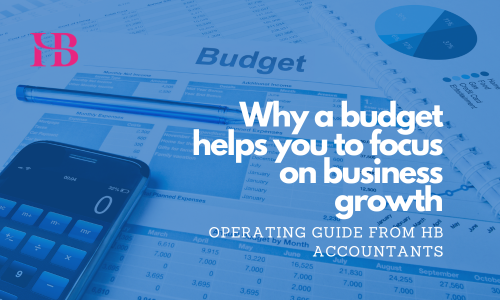If you are a charity, it is important to be aware that nearly all the provisions of the Charities Act 2022 are now in force as another tranche of rules came into force on 7th March, 2024.

HB Accountants – Specialist Charity Accountant
As a specialist Charities accountant for many years, working with charities in many sectors, HB is uniquely qualified to manage charity accounts and audit accounts for charities. We know firsthand that it is very important to work with an accountant who really understands charity finances and the different accounting requirements.
Part of our service is to share updates that directly impact your charity or business. Read on for a summary of the changes to the Charities Act that are now live.
New Elements of the Charities Act 2022 in force from 7th March, 2024 – a summary
From 7th March, 2024, the following elements of the Charities Act 2022 are now actionable.
- How to change governing documents
- Selling, leasing or otherwise disposing of charity land and
- Merging charities
Also, the Charities Commission may:
- Authorise a trustee to receive or retain a payment for work completed for the charity where the Commission decides it would be inequitable for a trustee not to be paid
- Confirm defective or potentially defective trustee appointments
Be aware that the rules governing ex gratia payments are yet to be enforced but it is expected that this will happen over the summer of 2024 after which, small ex-gratia payments can be made without requiring Charity Commission consent. ‘Small’ is determined by the charity’s gross income. For example, payments can be made up to £1,000 in the case of a charity with a gross income of £25,000, without authorisation. This payment allowance increases as income increases.
The Charities Act 2022 – new elements in more detail
Fundraising
When fundraising does not raise enough funds or it raises too many funds, the requirements for trustees have been simplified to allow them to use any received donations as intended.
Making changes to governing documents
- A new statutory power for unincorporated charities has been introduced allowing them to amend their governing documents, notwithstanding any other provisions in their governing documents.
- Charity Commission consent will still be required for certain amendments, such as changes to the charitable objects, the use of property on dissolution of the charity and private benefits for trustees or members. The same criteria will now be applied by the Commission when considering applications for changes to charitable purposes of unincorporated charities, trusts, CIOs and charitable companies, unifying the rules across all forms of charities.
- Public notice: the Charity Commission can direct a charity to give notice of certain changes to its governing documents, or it can do so itself.
- The Charity Commission has updated its guidance on ‘How to make changes to your charity’s governing document (CC36)‘ to reflect the new legislation
Selling, leasing or otherwise disposing of charity land
A number of provisions about how a charity disposes of land are now in force, including:
- Widened the category of designated advisers who can provide charities with advice on certain disposals to include liquidators, provisional liquidators, receivers, mortgagees or administrators and confirmed that a trustee, officer or employee can provide advice on a disposal if they meet the relevant requirements.
- Given trustees discretion to decide how to advertise a proposed disposal of charity land.
Full HMRC guidance may be found here: Selling, leasing or otherwise disposing of charity land in England and Wales
Charity Mergers
New rules are now in force that will allow most gifts to charities that merge with another charity to be recognised as gifts to the charity that they have merged with.
The HMRC guidance in full may be found here: How to merge charities
How can HB Accountants support your charity or not-for-profit?
HB Accountants has the experience and knowledge to support you with your charity’s reserves policy, help you claim gift aid, generate management accounts for the Board, or ‘simply’ support your bookkeeping or payroll. We can also support your trustees with their personal finances and tax.
For more information about all the ways HB goes above and beyond for you, your charity, and our community, contact the team at HB Accountants. We’re here to help.
The information contained above is for general guidance purposes only. Whilst every effort has been made to ensure the contents are accurate, please note that each individual has different circumstances and it is essential that you seek appropriate professional advice before you act on any of the information contained herein. HB Accountants can accept no liability for any errors
Read our Latest Posts Below
- HMRC Advisory Fuel Rates (AFRs) from 1st June 2025
 HMRC has published the latest Advisory Fuel Rates (AFRs) which apply from 1 June 2025. AFRs are the official rates used when reimbursing employees for business mileage in company cars. They’re reviewed every quarter (February, May, August and November) and adjusted in line with fuel prices.
HMRC has published the latest Advisory Fuel Rates (AFRs) which apply from 1 June 2025. AFRs are the official rates used when reimbursing employees for business mileage in company cars. They’re reviewed every quarter (February, May, August and November) and adjusted in line with fuel prices. - How an audit can help your business (and actions you can take to make it go smoothly too!)
 An audit may be a legal requirement for your business but a well managed audit can also boost your business growth and ensure that it is operating in the best way possible.
An audit may be a legal requirement for your business but a well managed audit can also boost your business growth and ensure that it is operating in the best way possible. - Why a budget helps you to focus on business growth
 Are you looking for clarity over the future direction of your business? Do you want to know the actions you should take in order to grow your business? Then consider taking time to create a budget for your business.
Are you looking for clarity over the future direction of your business? Do you want to know the actions you should take in order to grow your business? Then consider taking time to create a budget for your business. - How a SME Owner Can Create More Time
 SME owners and managers – are you part of the one in five small and medium-size enterprise managers that work on average an additional 3 hours a day on a regular basis? Or one of the 33% that claim that there just aren’t enough minutes in a day to get everything completed? (The Independent study … Continue reading
SME owners and managers – are you part of the one in five small and medium-size enterprise managers that work on average an additional 3 hours a day on a regular basis? Or one of the 33% that claim that there just aren’t enough minutes in a day to get everything completed? (The Independent study … Continue reading - A New Academic Year for our Student in Zambia
 As the new academic year unfolds in Zambia, we are delighted to share an update about our sponsored student, Getrude. Currently in her second year at Chalimbana University, Gertrude is studying Business Administration in Accounting and Finance.
As the new academic year unfolds in Zambia, we are delighted to share an update about our sponsored student, Getrude. Currently in her second year at Chalimbana University, Gertrude is studying Business Administration in Accounting and Finance.

